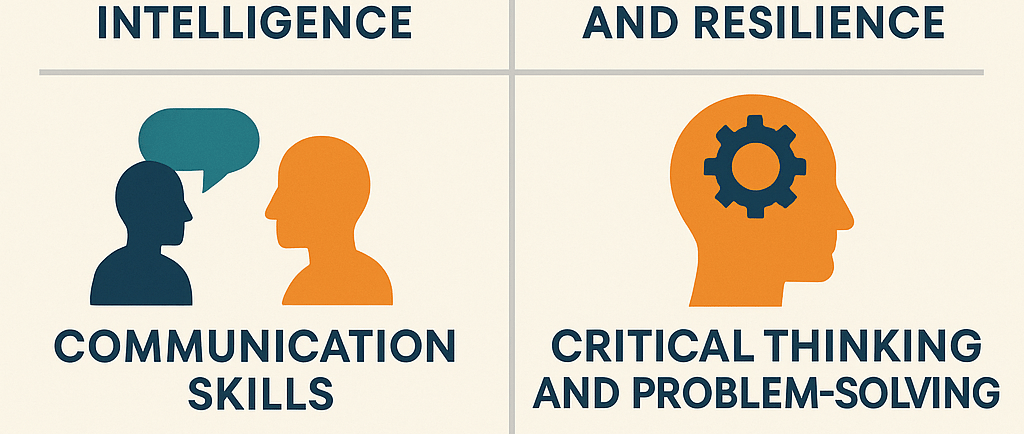Top Soft Skills in 2025: Thriving in a Human-Centered Future


In 2025, the world of work continues to evolve at an unprecedented pace, driven by rapid technological advancements, remote work trends, and increasing emphasis on human-centric workplaces. While technical expertise remains important, soft skills are now more critical than ever. These skills—often intangible—define how effectively individuals collaborate, lead, adapt, and communicate in a changing landscape. Here’s a look at the top soft skills shaping success in 2025.
1. Emotional Intelligence (EQ)
Emotional intelligence continues to top the list in 2025. As workplaces become more collaborative and diverse, the ability to recognize, understand, and manage one’s own emotions—and those of others—is invaluable. EQ promotes empathy, reduces conflict, and strengthens team dynamics. Leaders with high EQ are better equipped to inspire trust, manage change, and foster psychologically safe environments.
2. Adaptability and Resilience
In a world marked by AI disruption, global uncertainty, and continuous change, adaptability is a must. Employers value professionals who can pivot quickly, learn new systems, and remain calm under pressure. Resilience—the capacity to recover from setbacks—goes hand-in-hand with adaptability, enabling professionals to maintain performance even in adversity.
3. Communication Skills
Clear, persuasive, and empathetic communication remains a cornerstone of professional success. In 2025, this includes both written and verbal communication across multiple platforms (email, video calls, messaging apps). With remote and hybrid work environments now the norm, the ability to convey ideas clearly and listen actively is essential to maintaining strong collaboration and trust.
4. Critical Thinking and Problem-Solving
As AI handles more routine tasks, human workers are increasingly relied on for complex judgment and creative problem-solving. Critical thinking—the ability to analyze information objectively and make reasoned decisions—has become a top differentiator. Employers seek professionals who can think strategically, challenge assumptions, and design innovative solutions.
5. Collaboration and Teamwork
The modern workplace thrives on cross-functional and multicultural teams. The ability to collaborate effectively—whether in-person or virtually—is a defining soft skill in 2025. This includes respecting diverse perspectives, giving and receiving feedback constructively, and prioritizing shared goals over personal ego.
6. Leadership and Influence
Leadership is no longer confined to formal titles. In 2025, influence without authority is a powerful soft skill. Whether you’re leading a team or a project, the ability to inspire, guide, and motivate others is critical. This involves vision-setting, decision-making, and accountability—skills relevant at all levels of an organization.
7. Digital Mindset
While not a technical skill per se, a digital mindset is the ability to embrace and leverage digital tools and technologies confidently. It involves openness to automation, data-driven thinking, and a proactive attitude toward digital transformation—vital for navigating the modern workplace.
Conclusion
The most successful professionals in 2025 aren’t just tech-savvy—they’re emotionally intelligent, agile thinkers who thrive in complex, collaborative environments. Soft skills bridge the gap between human capabilities and technological advancement, enabling individuals to lead, connect, and create value in ways machines can’t. As we move forward, investing in these human-centric skills is not optional—it’s essential.
